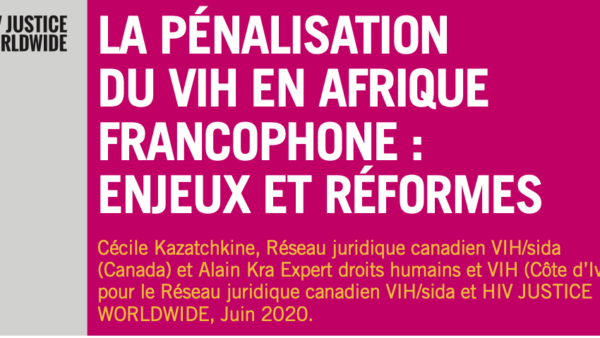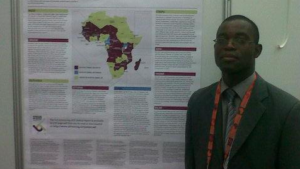Overview
Congo has an HIV-specific omnibus law which, as well as establishing a range of rights and protections for people living with HIV, contains an offence criminalising intentional transmission of HIV.
Article 41 of the Law No. 30-2011 on combatting HIV and AIDS and the protection of the rights of people living with HIV makes ‘any intentional transmission of HIV to others’ a crime publishable under Article 46 with imprisonment with hard labour. Article 42 establishes that the law does not apply in cases where:
-
- it involves mother-to-child transmission, before or during childbirth, or through breastfeeding;
- the act carries no significant risk of transmission;
- the person living with HIV is unaware of their status;
- condoms are used;
- the person has disclosed their status to their partner prior to an act involving a significant risk of transmission, or where the partner was already aware of their status;
- the person living with HIV failed to inform their partner due to a justified fear of serious harm as a result.
Article 42 sets significant limitations on the scope of Article 41, therefore, which arose following a workshop convened by civil society in 2009 in accordance with UNAIDS’ recommendations, after which the wording of the proposed bill was changed. In practice the law should apply only to cases where there is knowledge of HIV status, intent to transmit, a failure to use condoms, a failure to disclose status (except where there is a risk of harm), and a significant risk of transmission from the act. The law does not establish clearly whether only cases of actual transmission are prosecutable, or whether perceived ‘exposure’ could be prosecuted in the above circumstances. As there have been no reported cases under this law, its scope has not been tested.
The law also imposes criminal penalties including imprisonment and fines for failures to protect the rights of people living with HIV, including carrying out HIV tests without consent, disclosing test results, refusing to provide healthcare to people living with HIV, and discriminating against people living with HIV in certain circumstances.
Just prior to the enactment of Law No. 30-2011, in February 2011, the Criminal Chamber of the Court of Appeal of Pointe-Noire sentenced an HIV-positive man to 15 years in prison and a substantial fine after finding him criminally liable for infecting his wife. The Court considered him guilty under section 301 and 302 of the Criminal Code – attempting poisoning through the administration of a substance likely to result in death. This is the only known case in Congo.
Laws
Law No. 30-2011 on combating HIV and AIDS and protecting the rights of people living with HIV
Article 41
Any intentional transmission of HIV to others is a crime punishable by the penalties provided for in article 46 of this law.
Article 42
No one may be prosecuted or tried under this or any other law for HIV transmission or exposure where such transmission or exposure results from:
– mother-to-child transmission of HIV before, during childbirth or during breastfeeding;
– an act that does not involve any significant risk of HIV transmission;
– a person living with HIV who did not know his or her positive HIV status at the time of the act;
– a person living with HIV who has practiced safe sex;
– a person living with HIV who has informed his or her sexual partner of his or her HIV status before the act involving a significant risk of HIV transmission;
– a situation in which the sexual partner knew the positive HIV status of the person living with HIV;
– a person living with HIV who has failed to inform his or her sexual partner because of a justified fear of serious harm from the partner.
Article 46
Any person living with HIV, knowing his serological status relative to HIV, who will have intentionally transmitted HIV to others, apart from the exceptions defined in article 42 (…), will be punished with hard labor on time.
Acknowledgements
Report presenting the results of a survey on HIV criminalization in African countries where French is spoken, conducted from May to September 2017.
Authors: Stéphanie Claivaz-Loranger & Cécile Kazatchkine for the Canadian HIV Legal Network and HIV JUSTICE WORLDWIDE
HIV Justice Network's Positive Destinations
Visit the Congo page on Positive Destinations for information on regulations that restrict entry, stay, and residency based on HIV-positive status, as well as access to HIV treatment for non-nationals.

